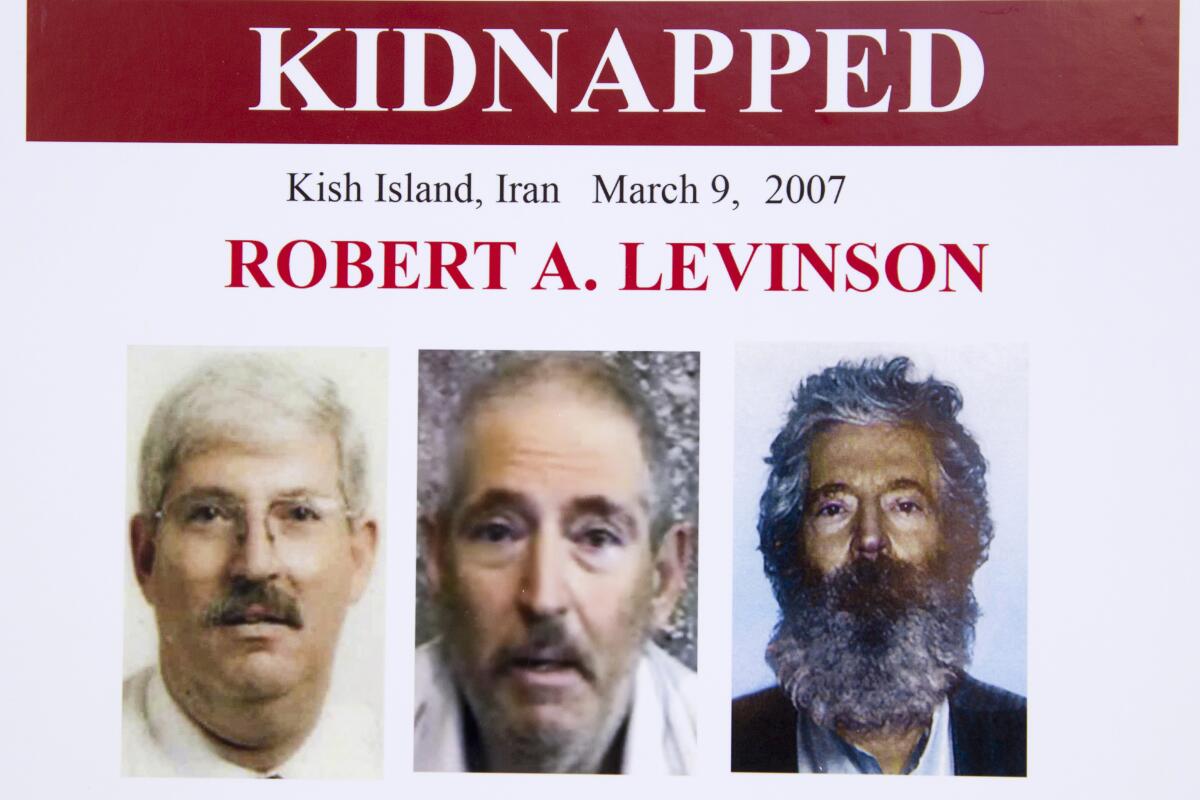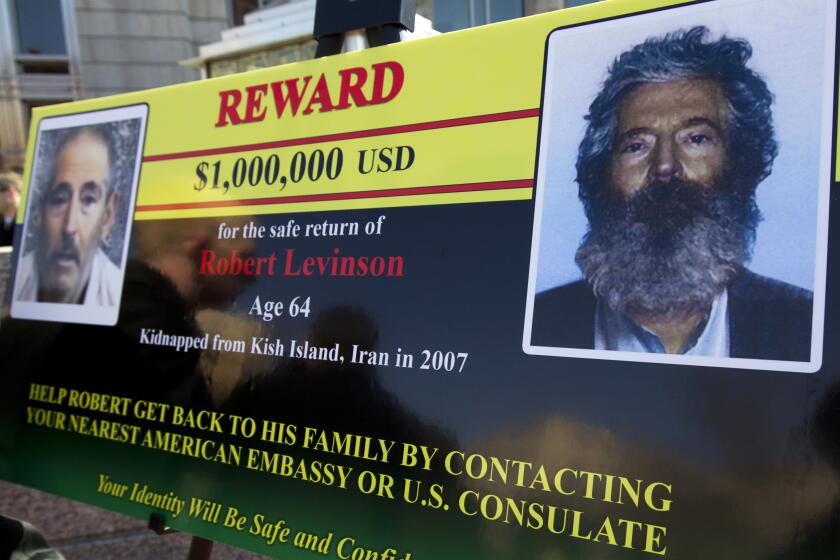U.S. blames Iran for abduction, death of ex-FBI agent Robert Levinson

WASHINGTON — The Trump administration for the first time formally blamed Iran on Monday for the presumed death of retired FBI agent Robert Levinson, publicly identifying two Iranian intelligence officers believed responsible for his abduction.
Levinson disappeared in Iran under mysterious circumstances more than a decade ago, and although U.S. diplomats and investigators have long said they thought he was taken by Iranian government agents, Monday’s announcement in the final weeks of the Trump administration was the most definitive assignment of blame to date.
Besides blaming two high-ranking intelligence officers by name, U.S. officials said the Iranian regime sanctioned the plot that led to Levinson’s abduction and lied for years about its involvement in his disappearance through disinformation campaigns aimed at covering up Tehran’s role.
The announcement comes nine months after U.S. officials revealed that they had concluded that Levinson “may have passed some time ago,” though they did not disclose at the time the information that led them to that assessment.
Officials on Monday would not describe any additional information that led them to believe Levinson had died in captivity, except to say that all evidence they had pointed in that direction. They also declined to say how they came to identify the role of the two individual intelligence officers.
Officials said they were acting now, one month before Trump leaves office, not for any political reasons but simply because they had finally accumulated enough information to formally hold Iran accountable. They also said that no agreement with Iran should be reached without a deal to free the remaining handful of U.S. citizens imprisoned in that country.
For years, U.S. officials would only say that Levinson, who disappeared in 2007, was working independently on a private investigation.
Levinson vanished March 9, 2007, when he was scheduled to meet a source on the Iranian island of Kish. For years, U.S. officials would say only that Levinson was working independently on a private investigation. But a 2013 Associated Press investigation revealed that Levinson had been sent on a mission by CIA analysts who had no authority to run such an operation.
The family received a video in late 2010 as well as proof-of-life photographs in 2011 in which he appeared disheveled with a long beard and wearing an orange prison jumpsuit like those given to detainees at the Guantanamo Bay prison. Even then, his whereabouts and fate were not known, and the Iranian government has repeatedly denied having any information about Levinson.
Earlier this year, a federal judge in Washington held Iran liable for his disappearance, saying the country was “in no uncertain terms” responsible for Levinson’s “hostage-taking and torture.”
In November 2019, the Iranian government unexpectedly responded to a United Nations query by saying that Levinson was the subject of an “open case” in Iranian Revolutionary Court. Although the development gave the family a burst of hope that he might be alive, Iran clarified that the “open case” was simply an investigation into his disappearance.
More to Read
Sign up for Essential California
The most important California stories and recommendations in your inbox every morning.
You may occasionally receive promotional content from the Los Angeles Times.











